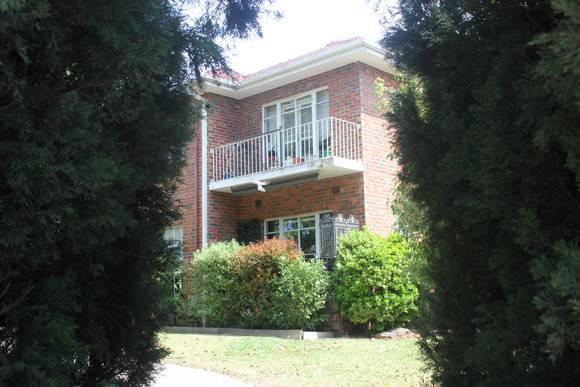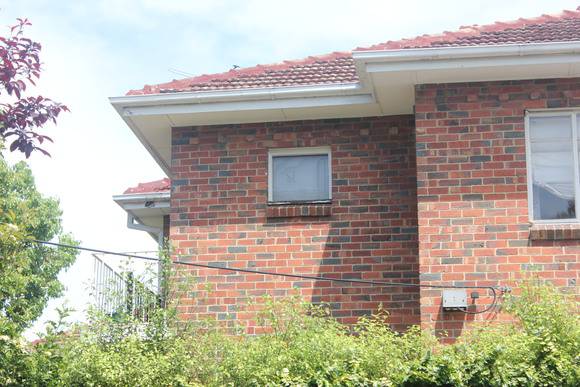| Back to search results » | Back to search page » |
|
Dumbarton Flats
Location62 Napier Crescent ESSENDON, MOONEE VALLEY CITY LevelIncluded in Heritage Overlay |
|
Statement of Significance
What is Significant?
62 Napier Crescent Essendon, a set of Post-War Moderne flats with
Functionalist, Old English and Art Deco references, is significant. It
was designed in 1948 by architect Leslie Edward Rowell for quarry
master Cyril Hector Reid. Significant elements include the: Original building form, roof forms, concrete Marseille tile roof
forms and balconies; Face brick surfaces including dentil course, clinker brickwork,
tapestry detailing; pattern of fenestration, steel-framed casement windows, etched glass
windows, iron balustrading on balconies; and early letter boxes. The aluminium entrance assembly and recent replacement window frames
are not significant.
How is it significant?
62 Napier Crescent Essendon is of local historical, architectural
(representative), aesthetic and associative significance to the City
of Moonee Valley.
Why is it significant?
Dumbarton Flats at 62 Napier Crescent Essendon is historically
significant for its demonstration of the incentive by Essendon City
Council to promote a middle-class and thoroughly modern residential
development on the Peterleigh Estate. Subdivided just prior to World
War II in 1938, the estate was promoted as a brick area which sought
to reinforce a more affluent type of development. The high quality of
the design of Dumbarton flats are indicative of the intention of the
estate to promote both a more middle class but also a more modern type
of residential development that coincided with changing social
conditions as higher density living became more common after World War
II. (Criterion A) 62 Napier Crescent Essendon is architecturally significant as an
example of post-war Moderne flats. Post war development and flats as a
building typology are not well represented on the Heritage Overlay in
Moonee Valley. Two particularly early examples of the style were built
pre-war at 2-4 Sherbourne Street Essendon, c.1936 (HO279) and 2
Riverview Road Essendon, 1935 (VHR1160, HO108). Two further examples
include houses built in 1940 at 93-95 Mooltan Street Travancore (HO75)
and 34 Peterleigh Grove Essendon (HO97). The Moderne style formed a distinct change from past architectural
styles, combining aspects of Functional Modernism that were concerned
with building form and structure, with a decorative approach to
materials and detail. 62 Napier Crescent is one of a small cohort of
Moderne buildings in Moonee Valley and is of high integrity with very
few changes visible to original or early elements. The building
retains its original building form, roof forms, balconies, some
original steel windows, brickwork and glazing detail. (Criterion D) 62 Napier Crescent is aesthetically significant for its form,
materials and details all present at a high level of integrity.
Elements include the asymmetrical 'L' shaped massing around a central
flat-roofed tower with deck. Integrated with the stepped plan are
cantilevered concrete balconies fitted with iron balustrading and
accessed via a pair of steel-framed glazed doors with sidelights. A
level of decorative detail is provided by the brickwork that features
a shadow line coping detail, a blind, round-arched window, a dentil
course below the eaves forming a discrete frieze around the entire
building. Several windows are glazed in etched glass with a late Art
Deco pattern. The setting of the flats is enhanced by a several mature
trees. (Criterion E) 62 Napier Crescent is significant for its association with Cyril
Hector Reid, quarry master and later director of Reid's Quarries,
North Essendon. Reid's Quarries that operated from the late 1930s to
1965 were suppliers of basalt, primarily for road building. As well as
Dumbarton Flats, Cyril Reid also built the double-storey dwelling at
66 Napier Crescent in 1955. (Criterion H)
Group
Residential buildings (private)
Category
House





